Review of Nick Broomfield Documenting Icons (Box Set)
Introduction
"I`ve been round the world several times and now only banality interests me." Words from one documentarian (the great Chris Marker) that seems to enshrine what`s interesting about another: Nick Broomfield, whose work is here presented under the weighty moniker of `Documenting Icons.` What lingers is never the sledgehammer conclusions or the colossal issues of our times handled with unblemished, objective balance. The great documentary is about the flow of life, the way that time passes in an interview, the nervous twitches of the subjects, watching them as they play with their kids, chat with their wives and get p***ed. The jagged voyeurism of the unrehearsed unfurling that doesn`t feel quite like life, it feels like life clotted and declared. The medium, like an exploded photograph, that sees everything that we want to hide, from tiniest nuance, to grossest misadventure, and calls us on it.
In this collection of obscure foot-note films from Britain`s infamous boom-mike wielding documentarian, Nick Broomfield explores females in the military (`Soldier Girls`), prostitution (`Chicken Ranch`), alternative sexuality (`Fetishes`), political biography (`Tracking Down Maggie`), underworld Hollywood (`Heidi Fleiss: Hollywood Madam`) and neo-fascism (`The Leader, His Driver and the Driver`s Wife`). Despite the ideological ballast dropped by such "big" topics, the tone and content avoids grandstanding and leans towards detail and minutiae, with Broomfield taking his cues and conclusions from character nuance and apparent circumstantial trivialities that most filmmakers never even see.
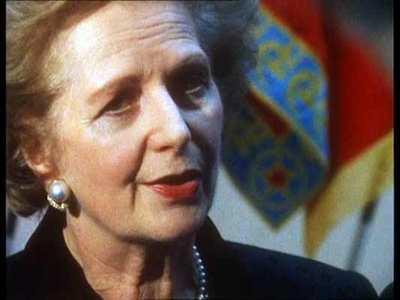
Video
It should come as no surprise that the six films (which span from 1981 to 1996), that were shot with basic equipment and more often than not produced for broadcast on television rather than film, don`t look like `Finding Nemo`. There were some quite serious and nasty glitches on the playback on a couple of titles, but these faults were temperamental, arising only occasionally on certain players. One can assume that these playback issues are related to the encoding problems that have so seriously affected the sound…
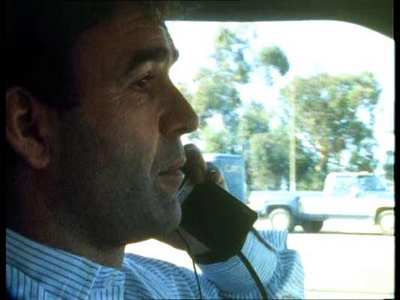
Audio
…Now here is where things go seriously, badly wrong. On these pre-release copies of the six DVDs, there are fatal sound faults. Initially, the sound appears to have be recorded on a ridiculously low setting, forcing you to raise the volume to breaking point. And then, the music (which to make things worse, is invariably atrocious) plays in and is so deafening on your manually adjusted volume setting, that any narration that plays under it is completely inaudible, thus making certain narrative shifts and developments unintelligible. The discs were each tested on several different players, televisions and sound systems to similar results. Baffling and horrible.
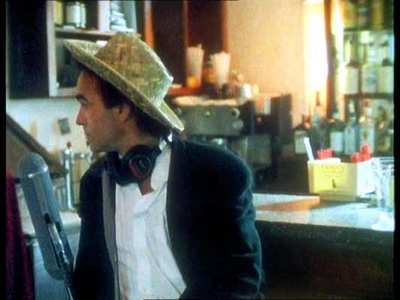
Features
A bit of a scattershot collection: a dappling of follow-up interviews here and there (most fun on `Soldier Girls`) that fill in a "where are they now" curiosity. On `Heidi`, a collection of Broomfield`s warmly self-deprecating 1999 ads for Volkswagen. On `Maggie`, some fascinating archival footage of the wretched woman at her most evasive, as well as some poll tax riot VT which still possesses a grim charge. Best of the bunch are two superior commentaries, on `Chicken Ranch` and `The Leader`, which feature Broomfield in an appealing, almost wistfully nostalgic frame of mind. Strong in parts, but hardly comprehensive.
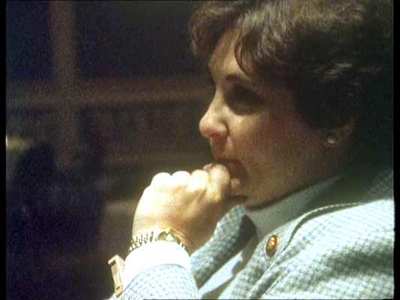
Conclusion
(NOTE: Playback and sound issues have been, as far as possible, discarded from consideration as a factor in the overall review on the assumption that this fault has been rectified for the commercial release.)
The earlier works, `Chicken Ranch` and `Soldier Girls` are the least interesting: roughhewn around the edges and sticking to a traditional documentary format, the distinctive Broomfield feel has evidently yet to be honed. `Chicken Ranch` sets the scene for his sardonic, probing interview style and its quirky setting (a legal brothel, constructed like a glorified porta-cabin, accessible only by air-strip in the middle of the Nevada desert) toys with the eerie claustrophobia Broomfield later perfected in `Fetishes`. `Soldier Girls` meanwhile boasts the supremely charismatic Sergeant Abing, but lacks the off-beat tangent and that crucial turn of the screw: the rigours of boot-camp are over-familiar to viewers and the film at times seems curiously indifferent to its singular unique faculty: its gender spin.
The best films in the collection are really misdirections: purporting to be about one thing, usually significant, but end up being about something else. Case in point: the sole homeland entry in this collection, `Tracking Down Maggie`, begins as a biography of the ex-PM, but turns into a breezy, sullen and hilarious exploration on the futility of making a documentary film. It`s so breezy a concoction that it seems to fall through your fingers as you watch it, and how could anyone construct a finer metaphor as Broomfield`s elusive subject, evading press on her international book-tour, constantly slips from his view, her shadowy presence evoking the slippery lore of Tory backstairs double-dealing. As the film evolves into concerning itself almost solely with the desperate attempts of its maker to get Thatcher in the interview room, all the film`s fairly idle speculations about Thatcher`s conduct: the Falklands, her unfailing support of rogueish, playboy son Mark, seem to dissolve away and the truth of Maggie, falls away with it, and all we`re left with is Broomfield`s unflustered, reserved frustration, the resolute cool he plies on his fruitless expedition and the silent admittance that something searched for has not been found, but the weirdly noble deflation that there`s a value in the searching.
The fleeting grandeur of "The Truth", follows Broomfield through `Heidi Fleiss`, the notorious Hollywood Madame whose ring of high-class call-girls catered for the sexual whims of Hollywood`s elite. Victoria Sellers (Peter and Britt Eckland`s sad, melancholically witty daughter) and ex-Uber-Pimp, Madame Alex (an amazingly eloquent, bed-ridden savant, who turns on Nick spectacularly) make for fascinatingly odd guides through a whistle-stop tour through Hollywood`s dark-side. It`s short on big revelations, but for that reason marks it as a key Broomfield work. As Madame Alex puts it at one point: "That`s what you people are here for, you want to find out what you can reveal about Hollywood. But Hollywood doesn`t want to be revealed." The twisted trio of Heidi, Madame Alex and Heidi`s sleazy ex-boyfriend and Hollywood pseudo-Don Ivan Nags lie so blindly, so effortlessly, that the truth itself seems to disappear from Nick`s, and our, view. Like so many of Broomfield`s films, `Heidi` sets out to tell one story: the truth about Hollywood`s underworld infamy, but instead, through the course of his investigation, performs a wholly organic twist into something else entirely: revealing the extent to which Hollywood`s wealthiest denizens will delude themselves to maintain their psychological equilibrium.
It`s one of Broomfield`s fastest, most facile creations, bravely grinding to a halt in the final act for the near unedited show-down with Fleiss herself. In so doing, the film highlights a dichotomy at the heart of Broomfield`s work: at once slight and observational but featuring probing, unflinching interviews. His tendency to avoid gratuitous editing, to let interviews play out to their organic conclusions is bold and refreshingly unsanitised and highlights that the key factor in all of his films are the people involved, not the subjects themselves.
Sexual politics behind closed doors rears its head again in `Fetishes`, filmed as part of the `America Undercover` television series, but despite its small-screen origins, it nevertheless features the claustrophobic cinematic coup to confine a film about bondage almost entirely within the walls of the sprawling, decadent mass of a Manhattan penthouse, now masking the countless sexual oddities of its customers. Whilst owner Mistress Raven`s garishly designed dungeons and surgical suites are the kind of surrealistic camp excess one expects from soft-core bondage fetishists, the ordinariness of the mistresses (like ultra-professional secretary Beatrice`s po-faced telephone delivery of their "catalogue") and the punters, is disarming.
Broomfield always finds room for off-kilter humour: such as conducting an interview with a female slave whilst she`s being flogged. Or in some wonderfully dead-pan narration: "she can whip a cigar out of a client`s mouth from 15 feet away." However, despite the lightness of tone, the mistresses` unrepentant sadism and the duplicitous, dull homogeneity of the clients is disturbing. And moments, such as Jewish clients engaging in submissive concentration camp scenarios and black men willfully being chained and degraded in slavery settings, point to the flaws in Broomfield`s laissez-faire approach by demanding further investigation and never receiving it.
The final, and best film of the selection, `The Leader` similarly evades a responsible analysis of the darker recesses of its subject, but here, the cruel truth ekes through every sad and absurdly funny pore. From the off, Broomfield admits to wanting to make the AWB, a reactionary right-wing opposition group to Mandela and de Klerke`s moderate, progressive ANC, look as ridiculous as possible. And the sharpness of the delivery, as well as the perverse foolishness of the AWB`s ludicrous neo-Nazi posturing, makes them the perfect subject for Broomfield`s melting pot of distressingly hilarious, banal profundities.
If Broomfield`s movies are as much documents of failure as examples of investigative journalism - and it has to be said, that they never quite hit the nail on the head, never quite manage to capture the essence of their intents, the souls of their "characters" (although here, capturing the leader in all his impossible human monstrosity, in the same moment as terrifying as he is ridiculous, may be the exception.) But in doing so, in so consistently missing the mark, they are even more endearing acts of filmmaking: improvisatory, incidental, unpredictable, capturing elements on the periphery that most documentaries, in their polemical charge don`t even know exist. Never predicating itself on being big and serious, `The Leader` is small, slight and intimate, and manages to pierce the heart of racism, not with a dramatic declarations of the leader himself as he screeches to his zealots in a wince-inducing mock-Hitler shriek; but with the mild, nauseated disillusion of the Driver, a sympathetic lost soul of staggering bigotry, teetering on the brink of violent frenzy, self-destruction and spiritual oblivion.
If this is less a comprehensive career overview and more a cherry-picked rarities collection of little-seen Broomfield gems then it`s probably all the better for it: subtly immersive, creeping up on you with an effortless, inarticulate, almost lazy artlessness, to finally sway its listlessness into enlightenment. And if it lacks the in-depth analysis and drop-dead immediacy that would have made converts out of the undecided, or enough rare insight to make it a collector`s treasure trove. Instead, it`s more of an engagingly disposable jaunt round the block, as slight and effortless as the movies themselves, and their maker.
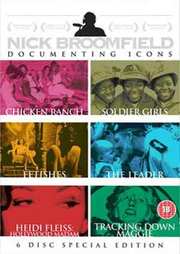




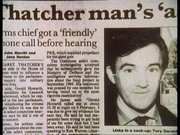


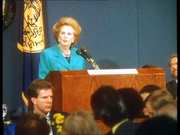
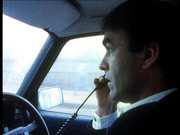
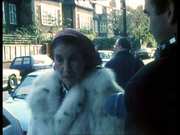


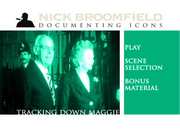



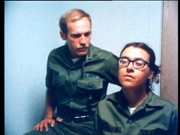
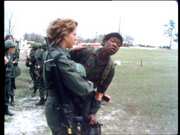
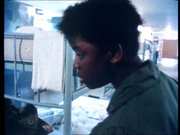
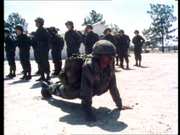

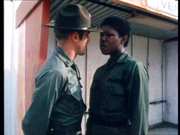
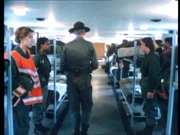


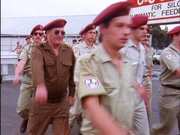
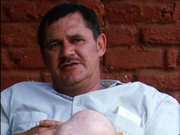
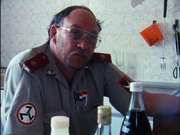
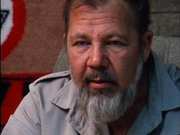


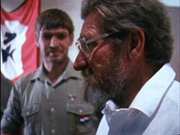



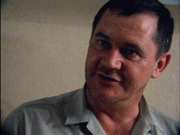
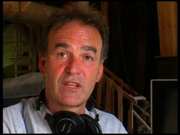



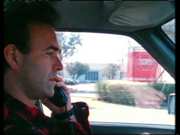


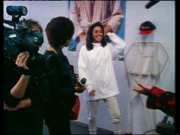
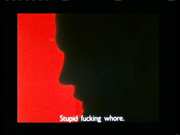





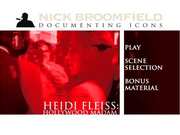
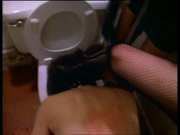
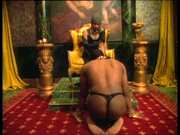


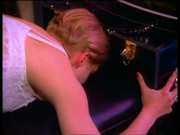
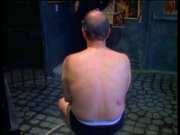

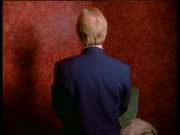
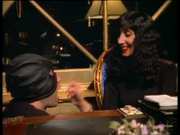
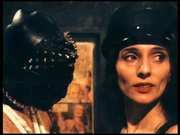
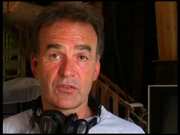
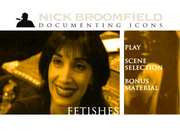

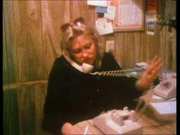
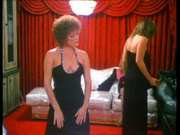


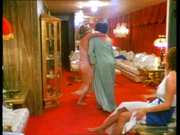
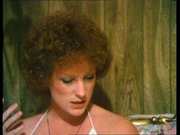
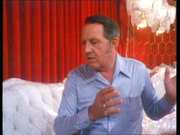

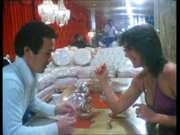
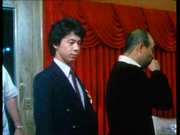

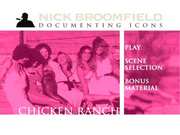
































Your Opinions and Comments
Be the first to post a comment!